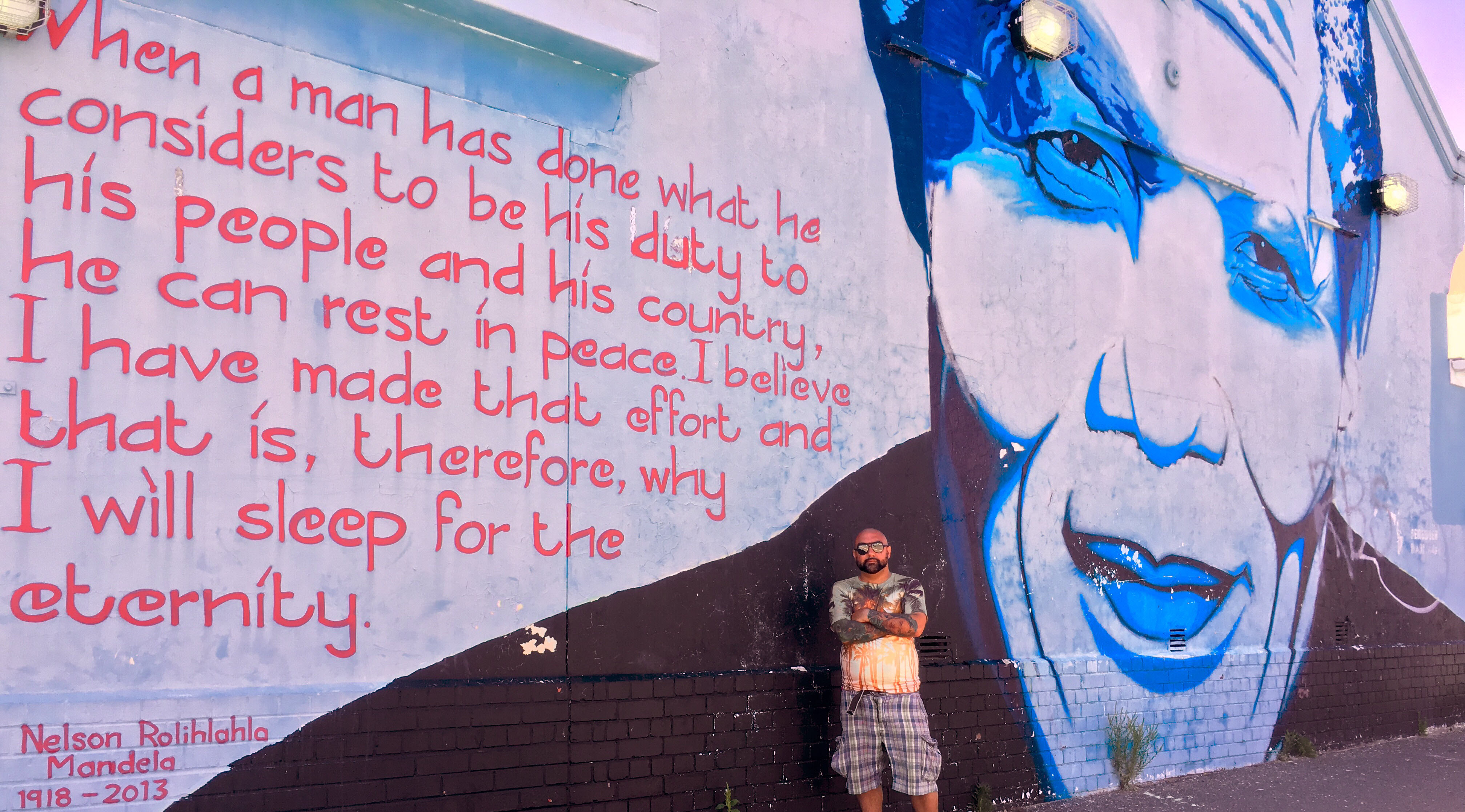Lives Well Lived

On this national day of mourning for President George H.W. Bush, we also remember the life of Nelson Mandela, who died on this day in 2013. Many Fund for Teachers grant recipients choose to research Apartheid as a vehicle for teaching racial reconciliation and social justice. We share glimpses into recent fellowships below:
Christine Mariano (Woodland School, East Hartford, CT) attended the Division of International Special Education and Services global conference in Capetown, South Africa, while also researching sites pertinent to Apartheid to embrace inclusive approaches to student instruction and also create learning around the life and impact of Nelson Mandela.
“The issue of tolerance was a subject of my fellowship, and will continue to be a focus of my instruction. We did a great deal of work in this area through history, film, and literature, including The Freedom Writers Diary, The Diary of Anne Frank, and the Kite Runner. I plan to broaden these lessons with a focus on Apartheid and Nelson Mandela, and include the literature, photos and videos I collected during my fellowship.”
 Shahara Benson (Russell Byers Charter School, Philadelphia, PA) explored the history of race relations in South Africa, closely connecting the events and leaders in the anti-Apartheid Movement with the Civil Rights Movement in America, to inform a compare/contrast study of present relationships and treatment of blacks and non-blacks in the US to South Africa.
Shahara Benson (Russell Byers Charter School, Philadelphia, PA) explored the history of race relations in South Africa, closely connecting the events and leaders in the anti-Apartheid Movement with the Civil Rights Movement in America, to inform a compare/contrast study of present relationships and treatment of blacks and non-blacks in the US to South Africa.
“Power: Visiting Robben Island and learning more about Mandela’s (and other freedom fighters’) struggles at the prison was an amazing experience, and in this moment, I was so excited to bring all of the things I had learned back to my students.”
Liz Kleinrock (Citizens of the World Charter School, Los Angeles, CA) researched the history of Apartheid, how the social construction of race has influenced communities outside of the United States, and how restorative justice practices can be used in reconciliation and healing efforts to inform an anti-bias curriculum for elementary aged students.
 “I now have so many resources and firsthand experiences to share with my students that will build context around our work towards social justice. I returned with armfuls of books, graphic novels, and primary sources that show how systems of oppression were constructed to marginalize people of color, including many for young audiences. Additionally, I was reminded to elevate the identities of students, and make them feel proud and inspired to be exactly who they are.”
“I now have so many resources and firsthand experiences to share with my students that will build context around our work towards social justice. I returned with armfuls of books, graphic novels, and primary sources that show how systems of oppression were constructed to marginalize people of color, including many for young audiences. Additionally, I was reminded to elevate the identities of students, and make them feel proud and inspired to be exactly who they are.”

At Mandela’s home prior to his imprisonment on Robben Island
John Beck and Stephanie Hanson (AUSL – Morton School of Excellence Elementary School, Chicago, IL) investigated key character traits of South African citizens throughout the history of apartheid to build a Social Studies and Advisory unit that challenges students to display integrity when faced with social and personal injustices.
“This fellowship allowed us to see what other cultures do in the face of adversity. South Africans view their progress with pride while still acknowledging the harsh realities. We also witnessed how key issues that are common to people despite different stories: Resilience, education, upward mobility are all things both countries strive for in the face of everyday challenges.”
Caprice Leidig and Kim Caipa (Silvestri Junior High, Las Vegas, NV) researched the struggles to end Apartheid and how that struggle continues to affect the climate of society in order to improve social and global awareness of low-income students.

Entering the place of Mandela’s imprisonment for 27 years
“Nelson Mandela is an important person in the history of South Africa. However, of equal importance is his story of strength, perseverance and tolerance is a source of inspiration for our students that we use throughout the year. Experiencing the struggles of Mandela and apartheid in South Africa in person provided us with an endless amount of details that will allow us to travel this journey with our students.”

At Mandela’s cell on Robben Island
Diego Duran-Medina (Eagle Rock School, Estes Park, CO) explored the history, impact and legacy of apartheid and Nelson Mandela to gather lessons for students as they begin defining their own path within a progressive, restorative-justice based alternative school.
“I created a new class called LeadServe to take a hard look at what it means to work for democracy in different contexts, and the two primary examples I use are the US and South Africa, specifically Civil Rights and Apartheid. Specifically, I use excerpts from Mandela’s writing to specifically ask questions that force the student to think about themselves and history.”
[minti_spacer height=”40″]
 Back to Blogs
Back to Blogs